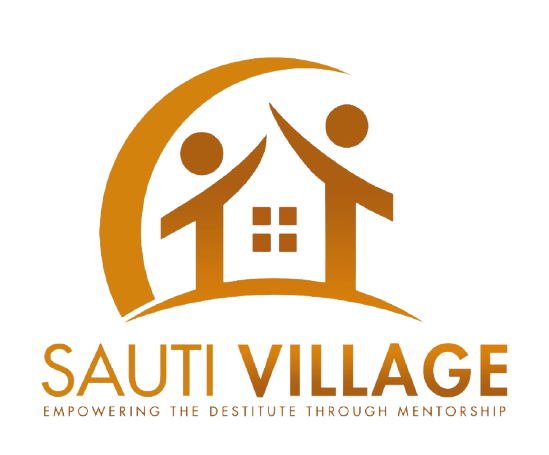Projected Impact
Our approach to poverty alleviation
As Sauti one, we realize that poverty alleviation strategy is not a one size fits all kind of thing, it is the incorporation of various strategies to provide maximum impact. Our goal is to help young individuals living in poverty and less privileged environments develop strong mental health and foster confidence in themselves. This is where Sauti Village comes in as our flagship mentorship program:

Plan of execution
Our model Mentorship
We do this by pairing children living in extreme poverty with mentors and a mentorship program that provides support for confidence building.
At Sauti Village, we believe “it takes a village to raise a child”
For this program to be successful we have to involve the community at large. We have Africans who are spread all over the globe who Know the communities and the culture, Speak the language and Went through similar issues. Instead of these children reinventing the wheel all by themself they can learn from these mentors.
We recognize that most organizations and/ or individuals go to needy communities with pre-planned structures and policies on how to solve perceived needs. More often than not, their ideas of what they think the respondents need may not necessarily be what is important to them. With mentorship, our goal is to identify specific needs other than generalized solutions for individuals, thus helping solve them from the grassroots level.
We will pair children living in Africa with African mentors living in the Diaspora.
how are we going to do that? How are we able to reach Africans living in diaspora and how do we account for our mentors?
Sauti Village is the main arm and program for Sauti One Inc. We are registered as a non-profit organization and Sauti Village is our main arm. Under Sauti One Inc, we have several programs that not only increase our reach, but also help raise awareness and funds for the flagship mentorship project we are working on.
The various programs stated below are not isolated projects, they are avenues that Sauti Village currently uses to feed into the broader vision of ending poverty through a combination of music and mentorship.
- Sauti Radio
- Sauti Awards
- Sauti Worship
- Sauti Fest
The mentors and mentees are matched based on various factors such as their common areas of origin and their matching interests among others just to ensure that the two parties are compatible. Boys will be paired with gentlemen and girls will be paired with ladies for mentorship.
Through mentorship, we will identify the opportunities available for the children in our program, identify talents and mentor them through it to expose them to a world of opportunities
A key aspect for this program also, is to inspire and give a platform to Africans living in Diaspora to be able to give back and build our own communities back home.
For many years, it has been such that the majority of missionaries that are seen helping in the communities we are targeting are not people that look like us. So we hope to inspire our own people, who have made it out of extreme poverty, to look back and help bring up others living in dire conditions.

MENTORS
- Our mentors are volunteers (Africans for Africa) living in diaspora. The aim is also to encourage and create opportunity for Africans to give back home and help raise the next generation.
- Mature menators
- Mentors must make a commitment to meet with the mentees biweekly.
- Mentors are to identify the strengths of the individual mentees and their potential. Our goal is to nurture talent and hopefully help each child to reach their full potential according to their abilities.
Mentor’s role and responsibilities
The mentor’s role is to listen, provide constructive feedback and help their mentee consider options. They may refer them to resources and facilitate decision-making and share their own experiences. They might help to identify areas for development, coach their mentee and allow opportunities to practice new skills. They may be a sounding board, ask questions to cause further exploration of ideas or to challenge their mentee’s thinking. They provide guidance, not direction and do not solve problems but act as a collaborator in the problem-solving process.
Academic Support
- Keeping mentee in school; helping them graduate from school; evaluating educational choices; directing them to educational resources.
Role Modeling
- Pointing out, bringing to attention, demonstrating, and explaining your own actions and values that offer the mentee the best chances for success and happiness; helping mentee see and strive for broader horizons and possibilities than they may see in their present environment.
Attention and Concern
- Many young people do not receive enough from the adults in their lives; mentors can fill in these empty spaces with dependable, sincere, and consistent attention and concern. Accountability A commitment made to a mentee for a meeting together, an activity, or an appointment should be a mentor’s priority, barring emergencies. This consistent accountability has several benefits:
- Sets a good example for mentee to see and emulate
- Cements trust between mentor and Mentee
- Creates mutual expectations that can be met

CHILD SAFETY
- Facilitators will stay with the children throughout on the days when they come to the center
- Conversations with the mentors to be recorded
- CCTV cameras at the location
PARENTS
- Parents have to be involved to ensure that the children in the program always show up.


EDUCATION & FEES
- The team is still deliberating on the necessity to pay school fees for the children in the program. (Will this be a determining factor for the availability of the children? If a child in the program cannot afford to attend regular school, will this beat the purpose of mentorship?)









